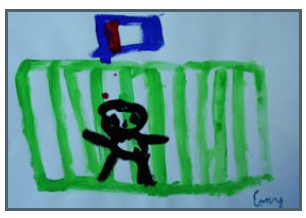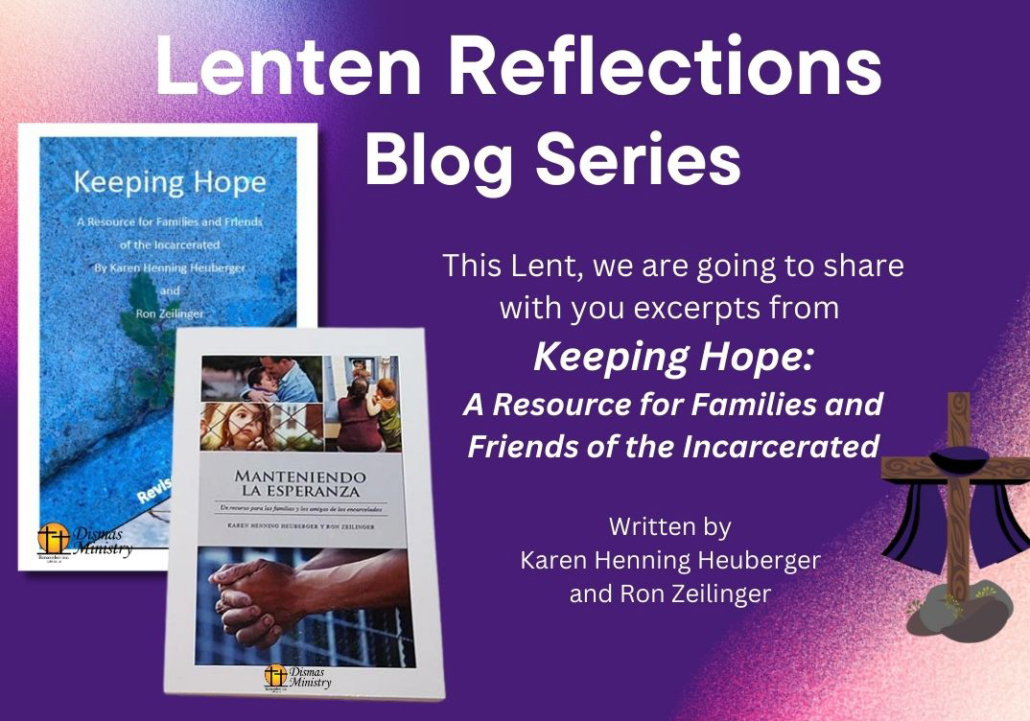This Lent, we are going to share with you excerpts from Keeping Hope: A Resource for Families and Friends of the Incarcerated
Written by Karen Henning Heuberger and Ron Zeilinger
“What about the children?”
Impact on Children
Whether it is a parent or other significant loved one who is in prison, incarceration of a family member can have a substantial impact on children. Infants and very young children may experience fewer difficulties when they do not know anything other than having their loved one incarcerated. However, older children who are more aware of their situation experience various challenges.
If others know about their circumstances, children of the incarcerated may often feel in prison themselves because they are not accepted or are discriminated against. They may get in trouble, be labeled, or be embarrassed because their parents or other close friends are incarcerated. As they grow older, they may be susceptible to issues like early pregnancy, mental or emotional health problems, or academic and behavioral difficulties. Often in these situations, it seems the children suffer more than the adults as they deal with the far-reaching consequences of the incarceration.

According to the National Resource Center on Children and Families of the Incarcerated, the impact on children whose parents are incarcerated is great.
Children may feel that it is somehow their fault that their loved one is incarcerated or have other feelings they do not understand and may not want to talk about. However, there are many things you can do to help the children of inmates work though their experience of having a parent incarcerated. First and foremost, be honest with them about the situation.
Telling the Children
While it may be difficult, telling children about the incarceration of a loved one in a gentle, honest way can help them deal with the situation more successfully. We know children are resilient, and will respond to the truth better than to secrets and the unknown. Of course, what you share needs to correspond to the ages of the children. The older they are, the more they can know about the situation. But even the youngest children need to understand that their loved one will be gone for a while and the children may or may not be able to be in contact with them throughout the term of the sentence.
Be sure to use developmentally appropriate language as you explain the situation. Answer questions they may have, but do not over-explain. Only give them the information they request at each stage. As they grow older, what you tell them will increase as well. In speaking honestly to the children, you can allay their fears that things are worse than you are letting on. Assuring them that they can be honest with you about their feelings will help them as well.
From Those Who Know…
I was 18 so my family kind of kept it away from me…My siblings are younger. They were upset, hurt. It affected everyone. We were asking, “Why did it happen? What happened? To this day we don’t know the whole story, only bits and pieces. Don’t know if there is truth in the matter of what we do know. They should have told us everything.
Their aunt, my husband and myself sat down with the children and told them…We promised that day that we would never lie to them and we have not.
His ex-wife told the children.
My husband talked to my two young grandsons. He told them he broke the law and would have to stay in prison for a while.
The FBI pulled them out of their classrooms and told them what their dad was charged with.

READ MORE FROM KEEPING HOPE BY PURCHASING YOUR COPY ON OUR STORE PAGE.


